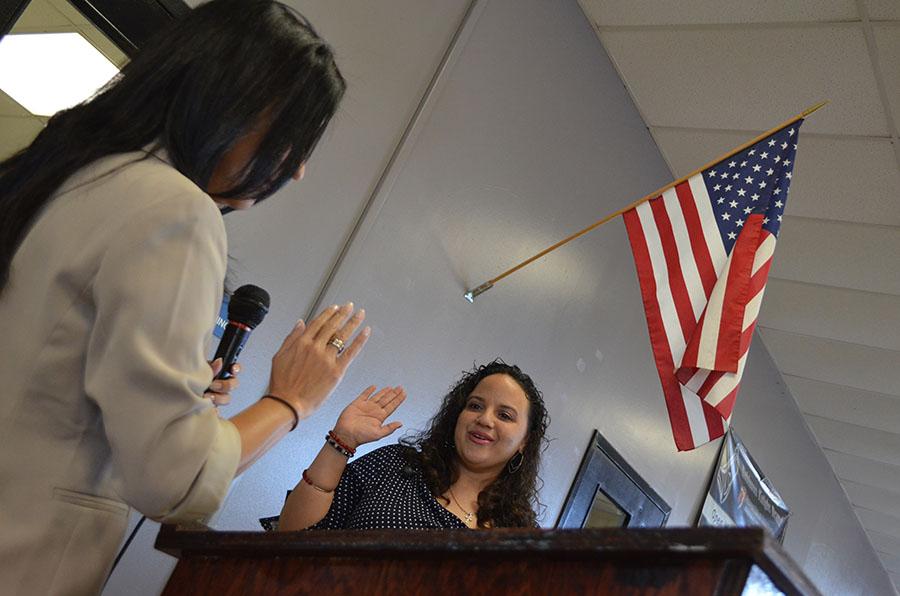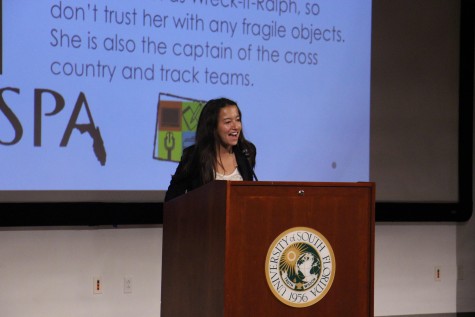Clad in red, white, and blue, tears of joy slide down Judi Dyce’s (formerly Charley-Sale) face as she participated in the ceremony of naturalization. In a special ceremony held in the cafeteria during A lunch-most naturalization ceremonies are held with groups of 50-100 people in the US Immigration Tampa Field Office- Dyce was able to be sworn as a U.S. citizen in the place she calls her “dream job,” where she teaches IB math.
Daniel Knutson, the Immigration officer who interviewed Dyce, gave a special forward to Dyce’s naturalization ceremony to the group students, teachers, and reporters packed into the lunchroom. “You all know she is a great teacher, but do you know her story, what brought her here? Sometimes, like with Mrs. Judi-Charley Sale, things shape our story before we are even born,” said Knutson. “She is what’s right with our nation and our immigration system, and embodies what we all strive to do.”
Dyce was born in Jamaica in the 1970s, during a time where the food was rationed and many were starving. The country was in political unrest, and violence throughout the country and its capital, Kingston, escalated. Bob Marley, a popular singer and advocate for peace, was shot in his house and fled the country with his family. Dyce’s grandparents, living in Kingston, feared for their lives. “I love Jamaica, I went to my basic school, primary school, and some of my high school there,” said Dyce. “I go down there very frequently, because a lot of my family and my husband’s family is still there. But it was a difficult time then and it has become even more difficult now.”
In 1987, Dyce’s family officially migrated to the Tampa Bay area. She attended 10th-12th grade at King High school, and graduated in the top 10% of her class with a full scholarship to USF. While tutoring mathematics at USF, she discovered her passion of teaching math.
She applied for citizenship once before, but while in the process her father died and her mother got sick. Because her parents were taking care of her grandmother, Dyce had to return to Jamaica to take care of her mother and grandmother. As a consequence, her first application was denied. “Now, I finally get what everybody else [in my family] got to get. I get now what I missed out on because I had to take care of my family,” said Dyce. Last summer, while on maternity leave, she applied again for citizenship, and was successful.
After becoming a citizen, Dyce was able to take part in a privilege of US citizens-the legal changing of name, changing her last name from her maiden name of Charley Sale to her husband’s last name, Dyce. In Dyce’s mind, though, one of the most important parts of citizenship is yet to come. “Being able to vote is really important because it means that whatever you say has an important impact on elected officials,” said Dyce. “Those are the ones who make all the decisions for the country I’ve been living in, and my voice didn’t count before because I couldn’t vote for them.”


